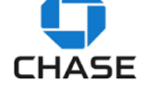The following is not legal advice. It is written by Alex from Bachuwa Law for educational purposes only. If you have a question or if you believe you have a complaint, submit an inquiry on bachuwalaw.com
Everyone is upset that Chase has updated its terms and conditions to include an arbitration provision. This leaves only a few banks including Capital One and Bank of America as major banks that have not instituted such a policy. Barclays, American Express, and Citi all have consumer arbitration agreements. The question everyone is asking is, “Is it in the consumer’s best interest to accept or reject Chase’s forced arbitration and why?”
The analysis is simple if this is taken from the perspective of one individual who is upset with Chase. On an individual basis, it is in the consumer’s best interest to resolve disputes through arbitration. Based on my experience of handling hundreds of these cases, there is the likelihood of a decent settlement early on in the process. That amount will be much higher than the token award that comes from a class action.
The analysis is more complex if this is taken from the perspective of a group of people. For the sake of argument, let’s assume that every DoC community makes a pact to either opt in or opt out. No one will go rogue. Entertaining this impossibility, the question now is, “Is it in our best interest to accept or reject Chase’s forced arbitration and why?” To answer this overarching question, I will address many generalizations regarding arbitration.
Contents
- 1 Consumer Can Reject the Agreement to Arbitrate
- 2 Consumers Have a Lower Chance of Winning in Arbitration
- 3 Class Action Bans Are Against the Best Interest of the Public
- 4 Class Actions Are Necessary Because It Is Illogical to Litigating Low Dollar Cases
- 5 Companies Win When No One Opts Out
- 6 Opt In? Opt Out? That’s What It’s All About
Consumer Can Reject the Agreement to Arbitrate
Arbitration is a creature of contract. If a consumer does not want to be bound by an arbitration clause, the consumer can either cancel the credit card or write Chase a letter stating that he or she is opting out. In response to opting out, it is unlikely that Chase will retaliate by closing the consumer’s card and listing this as the reason for doing so. That does not mean that Chase will not do so and cannot do so. It seems more likely that Chase would want to prevent backlash and litigation and would provide another justification for why it is no longer wants the consumer as a customer. To be clear, Chase can close a customer’s account at any time for any reason.
Verdict: True and False
Consumers Have a Lower Chance of Winning in Arbitration
Referencing, Ian Millhiser’s article, Chase Just Tried to Screw Its Credit Card Holders. Here’s How You Can Fight Back, the Economic Policy Institute’s Ross Eisenbrey explains, “individual workers forced into arbitration are less likely to prevail before an arbitrator than they are before a real judge. And when they do prevail, they typically receive far less money.” This statement pertains to employment arbitration, not consumer arbitration. However, let’s assume the data is similar in consumer. Obviously, this is a strike against opting on. At the same time, the data is limited as the number of arbitrations filed and the results, especially if the claims end in a settlement, are difficult to come by.
Verdict: True and False
Class Action Bans Are Against the Best Interest of the Public
Millhiser writes, “Class action bans effectively allow companies to illegally take money from their workers or consumers with impunity, so long as they only take a little bit at a time.” This statement artfully and accurately describes the motivation of companies for vehemently fighting for class action bans. It also assumes that companies are acting in bad faith. Millhiser writes, “Suppose, for example, that a bank decides to illegally charge a $150 fee to each of its 100,000 credit card customers.” In this hypothetical, Millhiser states that the bank is ‘deciding’ to scam its customers and is using arbitration as a way of getting away with this heist. If this were true, then the most effective way to expose corporate corruption is through class action. If the community believes that Chase is forcing arbitration in a nefarious plot to swindle its customers, opting out of arbitration to protect against this inevitability is the prudent course of action. This assumes that the community will be able to prove that Chase intentionally set up a scheme to defraud consumers and they will be properly sanctioned by the courts for doing so.
Verdict: True
Class Actions Are Necessary Because It Is Illogical to Litigating Low Dollar Cases
Millhiser writes, “Nearly none of these customers will sue the bank over a matter of only $150, because the cost of litigating such a case will exceed the amount of money at issue.” In consumer arbitration cases, the consumer pays a $200 filing fee. Logically, it does not make sense for a consumer (or even a law firm) to pay $200 when the basis of the dispute is less than that amount. In reality, when a consumer pays the filing fee, it forces the corporation to make a decision. Either it can settle the case at this juncture, or it can incur thousands of dollars in additional filing fees, which it is obligated to pay under the arbitration agreement. This does not include the cost of hiring an attorney to defend the company against the dispute. It also does not factor in the risk that the company will lose, which results in monetary damages including punitive damages if consumer fraud can be proven. It also includes attorney fees which can total tens of thousands of dollars. Unless the consumer’s complaint is frivolous i.e., made up, the consumer should file the claim.
Verdict: False
Companies Win When No One Opts Out
Millhiser cites the Uber case where only 270 drivers out of more than 160,000 opted out of Uber’s forced arbitration agreement to demonstrate how opt-out clauses help protect companies from a court decision invalidating a forced arbitration agreement. This is an employment not a consumer case, but the implication is that Uber mitigated its liability by forcing arbitration and eliminating the class action possibility. Facing a cost of $600,000,000 after 60,000 claims were filed, Uber may not be as enamored with arbitration as it initially was (see Uber’s Arbitration Addiction Could Be Death by 60,000 Cuts).
Verdict: False
Opt In? Opt Out? That’s What It’s All About
To fight companies, our strength is in numbers. Historically, this advantage was realized by way of class action lawsuits. Today, that mechanism has all but been eliminated by way of mandatory arbitration agreements. That does not mean the advantage has been neutralized. On the contrary, if the DoC pact opt in is adhered to, consumer arbitration will make it easier to file a mass action against companies. Indeed, the obstacles of class actions which are quite challenging to overcome are no longer a hindrance. There is no need to survive the summary judgment stage of litigation or have the class be certified before the arbitration can proceed. Consumers do not even have to hire a lawyer. All consumers would have to do is file a notice of dispute and force companies to play by the game they invented. Thousands of iterations later, Chase, like Uber, may rethink whether mandatory arbitration was a sound strategy. The resulting headline will be Chinese Water Torture: How Chase Went Insane from the Slow Drip of Unrelenting Arbitration Claims.
If you have any follow-up questions please voice them in the comments. If you’d like to discuss anything privately, you can find us at BachuwaLaw.com. Thanks for reading! Also don’t forget to check out the Fine Print series on Frequent Miler.







I might be missing something, but even if you opt out of mandatory arbitration, can’t you still choose to arbitrate later? Why reduce your options? IANAL, but I don’t think opting out of mandatory arbitration opts you in to mandatory lawsuits.
I’m not going to opt out and potentially kill the golden goose.
Same. I am a big fan of Chase and don’t want to draw any scrutiny to my accounts.
Does Elan (Fidelity Rewards VISA) have binding arbitration?
I must admit I haven’t been paying attention.
I am opting out.
Why do you want to upset your lenders? If credit card accounts are all you have with that bank (Chase), your chance of losing something financially is minimal. I’d be surprised if Chase is actually able to come up with a greedy schedule of fees without anyone noticing it or destroying its reputation and competitiveness in the market. So, it’s a fair game for both sides. The dedicated credit card users (which probably occupy the biggest readership here) have little to lose, and Chase’s target is probably not them (us) anyway. So, do you want Chase flag you?
You sound like a Chase employee
In an ideal world, Wells Fargo never exists. But wait, which fantasy land are you living in?
So, how many letters do we have to send Chase to opt out? One per Card?
I would think if you notify for and specify ALL revolving credit lines past or future hopefully you are covered.
One per account. Use https://www.chaseoptout.com/ to make it easier – a free service set up by a competing bank to print and mail the opt-out letters.
How safe is that website?
Got 4 letters yesterday for each of my business cc accounts.
personal are still coming
Why do you want to upset your lenders? If credit card accounts are all you have with that bank (Chase), your chance of losing something financially is minimal. I’d be surprised if Chase is actually able to come up with a greedy schedule of fees without anyone noticing it or destroying its reputation and competitiveness in the market. So, it’s a fair game for both sides. The dedicated credit card users (which probably occupy the biggest readership here) have little to lose, and Chase’s target is probably not them (us) anyway. In short, then why do you want to upset your lenders?
I’m not opting out.
I’d rather be robbed off by a company than ripped off by the lawyers, and be part of a class action where I get $5, the class rep gets $10k and the lawyers get $10M.
I went to law school and know too many attorneys to want them to be the big winners. There are exceptions, but in general, I’d rather the windfall go to the company than the lawyers.
This seems like a very silly reason to opt out. You say you don’t want to get $5. Well thats not the only reason. A class action can change company policy all together. Not to mention with arbitration you get $0 instead of $5. And you are saying you’d rather the company get the windfall? Do you mean chase and THEIR LAWYERS? Ridiculous. Don’t forget Chase has their own army of lawyers. Your thought process coupled with your claim “I went to law school” is dubious at best.
Sounds like someone’s law degree hasn’t paid off for them, and now they’re disgruntled against the profession. Not a good reason to not opt out.
i have lived in countries without class action, and consumers there can be robbed blind as well as mauled, with little recourse.
it seems that class action needs reforming in the usa, if indeed lawyers are taking advantage of clients, but the system is often the only chance consumers/regular folks have against a large business.
Who is the actual author of this piece?
Or is William Charles working for BachuwaLaw on the side?
William Charles working for BachuwaLaw on the side?
Confursed…
It’s a guest post from them, I believe.
It’s a guest post from Alexa at Bachuwa, sorry thought that was clear but let me update to make it clearer.
I opted out. Ever since then when I use Chases pre qualified tool no cards show up. I sent a secure message to Chase and they claimed “opting out will not effect my account or standing with Chase in any way”. I wonder if I will get approved for new cards in the future.
Since each account requires opting out separately, and any accounts opened after the opt-out deadline are permanently opted in, maybe you’ll start seeing offers again after the deadline – if it even has anything to do with this.